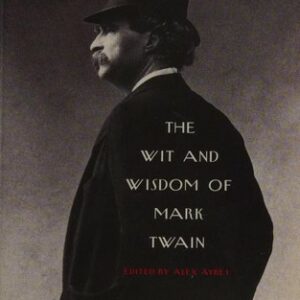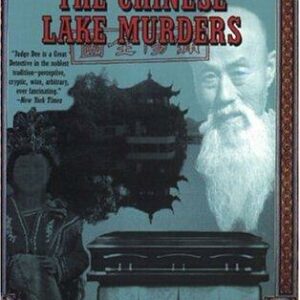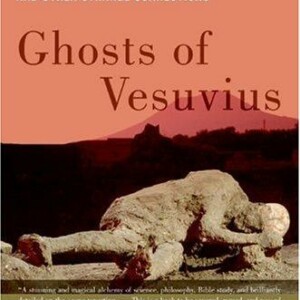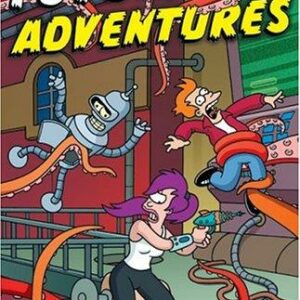Absynthe
$18.00
| Title | Range | Discount |
|---|---|---|
| Trade Discount | 5 + | 25% |
- Description
- Additional information
Description
In his sci-fi debut, Bellecourt explores an alternate roaring 20s where a shell-shocked soldier must uncover latent telepathic abilities to save himself and the people around him.
Liam Mulcahey, a reclusive, shell-shocked veteran, remembers little of the Great War. Ten years later, when he is caught in a brutal attack on a Chicago speakeasy, Liam is saved by Grace, an alluring heiress who’s able to cast illusions. Though the attack appears to have been committed by the hated Uprising, Grace believes it was orchestrated by Leland De Pere–Liam’s former commander and the current President of the United States.
Meeting Grace unearths long-buried memories. Liam’s former squad, the Devil’s Henchmen, was given a serum to allow telepathic communication, transforming them into a unified killing machine. With Grace’s help, Liam begins to regain his abilities, but when De Pere learns of it, he orders his militia to eliminate Liam at any cost.
But Liam’s abilities are expanding quickly. When Liam turns the tables and digs deeper into De Pere’s plans, he discovers a terrible secret. The same experiment that granted Liam’s abilities was bent toward darker purposes. Liam must navigate both his enemies and supposed allies to stop the President’s nefarious plans before they’re unleashed on the world. And Grace is hiding secrets of her own, secrets that could prove every bit as dangerous as the President’s.Praise for Absynthe
“Absynthe drew me in with impeccable worldbuilding and nuanced characters, but it’s the exquisite pacing that kept me completely engrossed in this richly imagined yarn.” —Jason M. Hough, New York Times bestselling author
“Set in a lushly depicted alternate Roaring ’20s distinguished by futuristic technology…Bellecourt’s sci-fi debut is complex, ambitious, and sweeping in scope.” —Publishers WeeklyBrendan Bellecourt was raised in the cold climes of rural Wisconsin, where he lives still with his family and trio of cats. His love of science fiction was sparked early by Frank Herbert’s Dune and C. J. Cherryh’s Faded Sun Trilogy. Later influences include Robert Charles Wilson, Ted Chiang, and China Miéville. His favorite stories are those with flawed protagonists who are deeply affected by, and later come to influence, some jaw-dropping, world-altering change.One
On a crisp spring day in 1928, Liam Mulcahey found himself sitting in the back of a sleek maroon Phaeton, headed for the grand opening of the new flashtrain line.
As the Phaeton navigated the roads of the Chicago suburb, the driver glanced into the rearview mirror with his glowing blue eyes. “Are you quite certain it will be all right for me to attend, Master Aysana?” His voice was slightly garbled, the speaker built into his faceplate in need of repair. In the driver’s seat was a mechanika named Alastair, the chauffeur of the Aysana family, whom Liam worked for.
Sitting beside Liam in the back seat was Morgan, son of the famous rail baron Rajan Aysana. “I’m certain,” Morgan said with a placating smile. Alastair had been giddy with excitement for days at the prospect of seeing the new flashtrain debut.
“Because I can stay in the car if it would be too much of a bother,” Alastair went on.
“No, no, Alastair, you’re most welcome.” Morgan was twenty-eight, the same age as Liam. He had a round, freckled face and straight black hair with long bangs he was often flicking out of his eyes, a source of frustration for his doting mother.
“Well, then, that’s fine, sir.” Alastair couldn’t smile as such, but Liam had been working on him long enough to note the signs of his contentment. He sat straighter in his seat. His head momentarily jiggled from side to side. “That’s fine as raspberry wine.”
Liam didn’t like crowds-a predisposition that had only deepened since war’s end in 1918-yet he had to admit, he was excited too. Rajan Aysana’s accomplishments deserved recognition, but more than that, Liam wanted to pay back the kindness and generosity that Rajan and his wife, Sunny, had shown him over the years. So while the grand opening promised to be cheek-to-jowl, Liam had vowed to stifle his discomfort and raise his voice in celebration.
Besides, Leland De Pere, the President himself, was set to give a speech. He had been an Army officer during the war against the countries of the St. Lawrence Pact: Germany, France, Great Britain, and Canada. Liam had served under him, though all he recalled of the man was a speech he’d delivered to Liam’s class of soldiers, fresh out of boot camp, at Fort Sheridan. Liam doubted very much the president would remember him, but what an honor it would be if he did.
Soon they were pulling off the main road and entering the jammed parking lot of the gleaming flashtrain station. Attendants waved them toward the front of the lot, where a line of long-nosed limousines were letting out the VIPs.
The station itself was a small but impressive structure of rough stone, frosted glass, and highly polished steel. Red, white, and blue bunting was everywhere. A crowd of men, women, and children waited near the entrance, cordoned by red velvet ropes into a long, snaking line. Hundreds more had already been let in. Liam could see them standing along the edge of the platform two stories above. He swallowed hard while staring up at them; it was going to be much tighter than he’d envisioned.
As the Phaeton reached the back of the queue, Liam realized Morgan had been staring at him.
“You can stay in the car if you want, old buddy,” Morgan said.
“No, I’ll be fine.” Liam had meant the words to sound more convincing, but he could tell by Morgan’s sympathetic reaction he’d failed miserably.
“Or Alastair could take you home if you’re not feeling up to it,” Morgan said. “I’ll tell you all about it tomorrow.”
Liam shook his head. “I wouldn’t dream of robbing Alastair of the chance to see the President speak.”
Alastair glanced at Liam in the mirror. “Oh, don’t worry about me, sir.”
“No,” Liam said firmly. “We’re here. Let’s celebrate.”
Morgan paused, weighing Liam’s sincerity, then smiled. “We won’t stay long.” He squeezed Liam’s shoulder. “I promise.”
The Phaeton pulled to a stop, and waiting attendants opened the passenger door. After stepping out and being patted down for weapons by two serious-looking government officers in black uniforms, Liam and Morgan headed up the nearby ramp. When they reached the elevated platform, practically every square inch was packed. And not just the near platform; the westbound platform was half-full as well.
Feeling his breath growing shorter, Liam used one of the few tricks that helped to calm his nerves: he studied his surroundings. High above, an arched roof of steel girders and frosted glass shaded all from the bright, noontime sun. Many of those in attendance had dressed up. They wore fine suits and bowlers, frocks and cloche hats, but there were others with simple coats and dresses, not to mention a few button-down shirts that showed a wrinkle or two. Liam didn’t feel at home, precisely, in his simple woolen pants, pea coat, and tweed flat cap, but neither did he feel out of place.
Set near the tracks was a decorated wooden stage with stairs and a raised speaking platform. Cordoning the area around it were more stanchions and velvet ropes. Standing behind the ropes were men wearing black suits with the initials of the Central Intelligence Corps embroidered onto their breast pockets. More were situated at the edges of the crowd. To a man, they stood at military ease, their legs spread shoulder-width, their hands clasped behind their backs as they scanned the crowd for signs of danger.
As the seconds passed, Liam’s heart slowed, and he breathed a short sigh of relief.
“One minute!” roared a burly cuss of a man, a porter with a push-broom mustache. “One minute remaining!”
Like the other porters, the man wore a long black coat, white gloves, and a red cap, though in his case the cap was pulled so low one could hardly see his eyes. The way he barked-indeed, the very timbre of his voice-summoned memories of the war, of drill sergeants. Curiously, his loping gait was accompanied by a faint, mechanikal whirring, likely from one or both of his legs having been replaced with prosthetics.
Liam was frustrated by his inability to remember more of the war, but he’d long grown used to it. The head wound he’d suffered during one of the war’s final battles had erased most of his memories of his time in uniform. What was odd, though, and made it all the more frustrating, was the fact that the erasure wasn’t absolute. Every now and again, something would spur a memory, but the moment he tried to reach for it, it would fly away like a startled goldfinch. Such was the case on the train platform as Liam tried to recall who the porter’s voice reminded him of.
He gave it up as useless just as Alastair, having parked the Phaeton, joined them. Liam, Morgan, and Alastair were all of a height, just shy of six feet, but Alastair was necessarily thinner, the minimum amount of weight being critical for extending the life of the power source inside his gut. “Have I missed it, sirs?”
“You’re just in time,” replied Morgan.
“Very good, sir.” Alastair might be a mechanika made of steel and brass, but at the moment he looked like an overexcited child-restless feet, eyes constantly moving, his metal fingers tenting before him. “Look!” he called in his garbled voice, pointing. “There it is!”
Heads turned. Necks craned. The porter stormed along the platform’s edge shouting, “Behind the yellow line, now! Behind the yellow line!”
Standing on tiptoes, Liam saw a glint of silver to his right. Beyond it, visible over the treetops, were the towers of downtown Chicago. The silver shape grew, the sleek engine and its trailing cars becoming more discernible.
“Hold your hats!” shouted the burly porter as the hum of the train’s engines grew louder.
Liam pinched the brim of his cap just in time. The platform vibrated. The flashtrain blurred past. Liam felt himself tugged forward in the vacuum of its wake. Then a gust of wind washed over the crowd like a wave off the sea. Dresses lifted, exposing knickers. More than a few hats flew into the air, sucked into the flashtrain’s mighty draft. Many laughed in excitement. Others stared in awe as the train dwindled into the distance. A few rows ahead of Liam, a red-haired girl sobbed in the arms of her mother.
As the train’s thunder faded, the crowd hummed excitedly. Many of those in attendance would never have ridden on a train. Now they’d seen a wonder of the modern world, a train so fast its speed rivaled the bi-planes from the war.
“So that’s it, then?” Liam shared a wink with Morgan. “Time to go home?”
Morgan let out an affected sigh. “Yes, yes, I suppose it is.”
Alastair looked from Morgan to Liam and back, somehow managing to look heartbroken. “But the President . . .”
Morgan smiled sympathetically. “Sorry, Alastair. It was only a joke. Father wanted to demonstrate the train’s top speed. It’ll be returning shortly.”
“I see.” Alastair’s eyes went dark several times, his equivalent of a blink. “Did you think your joke was funny, sir?”
A laugh burst from Morgan. “No, I suppose I didn’t.”
The hum of conversation had only just started to die down when the crowd shifted their attention to the westbound track. Moments later, the train glided to a stop ahead of them. Behind the sleek engine were three passenger cars, each bearing Aysana Lines’ bright yellow logo, a circle with the letters AL inside it. Curiously, the third car had no doors at all-apparently, it could only be reached from an adjoining car-and its windows were blacked out, blocking any view of the interior.
To Liam’s right, the burly porter dragged a truly massive sandwich board toward the edge of the track. It read, Forest Park Welcomes President De Pere! After setting it down near the last car, the porter turned to face the crowd. “Ladies and gentlemen,” he roared, “I give you the President of the United States.”
To a round of applause, the first car’s doors slid open. Revealed was a strikingly handsome man in his late forties with hazel eyes and golden blond hair parted to one side. Standing behind him were Morgan’s parents, Rajan and Sunny Aysana, a handsome Vietnamese couple who’d met in Chicago after emigrating to the States some forty years ago. They departed the train car together. As Rajan and Sunny smiled proudly, De Pere shook a few hands, waved, and sent smiles over the crowd, then he took the stairs to the top of the waiting stage.
Liam recalled a much younger Leland De Pere, the striking officer who’d given the speech in Fort Sheridan along the shores of Lake Michigan. It had been a hopeful day, but for some reason, seeing De Pere working the crowd gave rise to another of the few memories Liam had of the war, one of a broken battlefield, of holding a Springfield rifle, of trenches crisscrossing the shattered terrain. It had been dusk, the air both chill and damp. Ahead, a thick bank of fog had approached Liam’s position, and somewhere inside it, rhythmic booms pounded the earth. Red lights swept the fog’s thickness, ruby scythes cutting wheat.
Liam could never remember how he’d wound up in that terrifying place. He’d trained and served in the 128th Infantry, a grease monkey outfitting and repairing the battle suits used by the U.S. Army. How he’d landed on a battlefield, holding a bayonet-tipped rifle, he wasn’t sure. His best guess was that desperation had driven the Army to reassign him. It had been a critical battle, after all, the last major offensive of the war. He must have been reassigned to help in it.
Liam was suddenly drawn back to the flashtrain platform when Morgan elbowed him and said in a low voice, “What do you think happened to him?”
“Who?” Liam asked.
Morgan pointed to the shadows of the passenger compartment the President had just left. “The President’s aide, Max Kohler.”
Watching from within shadows was an impeccably dressed man whose face was hidden by an iron mask. Much of the mask was the dull color of pewter, but its filigreed swirls shone like oxidized brass. It was all soft curves, with no human features to speak of save three slits, where the mouth and nose would be, and two eyeholes-one a circular red lens, the other oval-shaped, revealing a bright blue eye. As the President spoke, Kohler studied the crowd warily.
Liam stared at him a moment. “I’ve no idea.”
It was likely Kohler had sustained some terrible injury during the war. His demeanor was off-putting, as if he distrusted everyone and everything around him. Leaning as he was against the luggage rack, his jacket hung open to reveal a sidearm, a Webley revolver, in a black leather holster. Like the burly porter’s barked commands, there was something familiar about the cocky way he was surveying the crowd.
For a moment, Kohler’s lone blue eye met Liam’s browns. He stared at Liam hard, as if he too were having a moment of recognition. Or maybe it was Liam’s imagination. In all likelihood he was only sizing Liam up for threats to the President. Soon, his gaze passed over to others in the crowd.
What followed was the sort of speech a public official gives at a ribbon cutting. That De Pere was a one-time military officer and a West Point graduate was clear. You could see it in his posture, in the precise way he spoke. He praised Rajan Aysana’s accomplishments as an inventor, an innovator, and an industry leader, but he gave compliments to his wife Sunny as well, who was bright, funny, and an ever-present fixture at all of Rajan’s public appearances.
“So it is,” De Pere said while waving to the red ribbon behind him, “that I bestow the honor of opening Chicago’s newest commuter line to the woman who supported her husband each and every step he took to becoming a giant of American industry.”
Sunny and Rajan climbed the stairs up to the platform where Sunny, her eyes crinkling with pride, picked up a massive pair of scissors from a pedestal. The scissors looked comically large in her small hands, but Sunny didn’t seem to mind. It took her a few tries, and her efforts were accompanied by a smattering of good-natured laughs, but eventually she managed to cut through the ribbon. Then she, De Pere, and Rajan were walking onto the roof of the train car, linking hands and raising them in triumph.
The crowd along both platforms cheered.
Eventually it was quiet again, and Rajan and Sunny took the stairs down. De Pere remained and walked to the edge of the stage, where he spread his arms wide and cast his gaze over the crowd.US
Additional information
| Weight | 13.4 oz |
|---|---|
| Dimensions | 0.8300 × 5.9900 × 8.9800 in |
| Imprint | |
| Format | |
| ISBN-13 | |
| ISBN-10 | |
| Author | |
| Audience | |
| BISAC | |
| Subjects | sci fi books, world war 2, science fiction books, sci fi, ww1, fiction books, books fiction, time travel, civil war books, adventure books, FIC028110, sci fi book, sci-fi books, science fiction novels, books science fiction, alternate history books, alternative history, shell shock, roaring 20s, super soldier, WWII, historical, war, fiction, mystery, coming of age, science fiction, dystopia, civil war, novels, alternate history, WW2, thrillers, science fiction and fantasy, historical fiction, FIC028140, sci-fi, steampunk, mystery books, 1920s |











